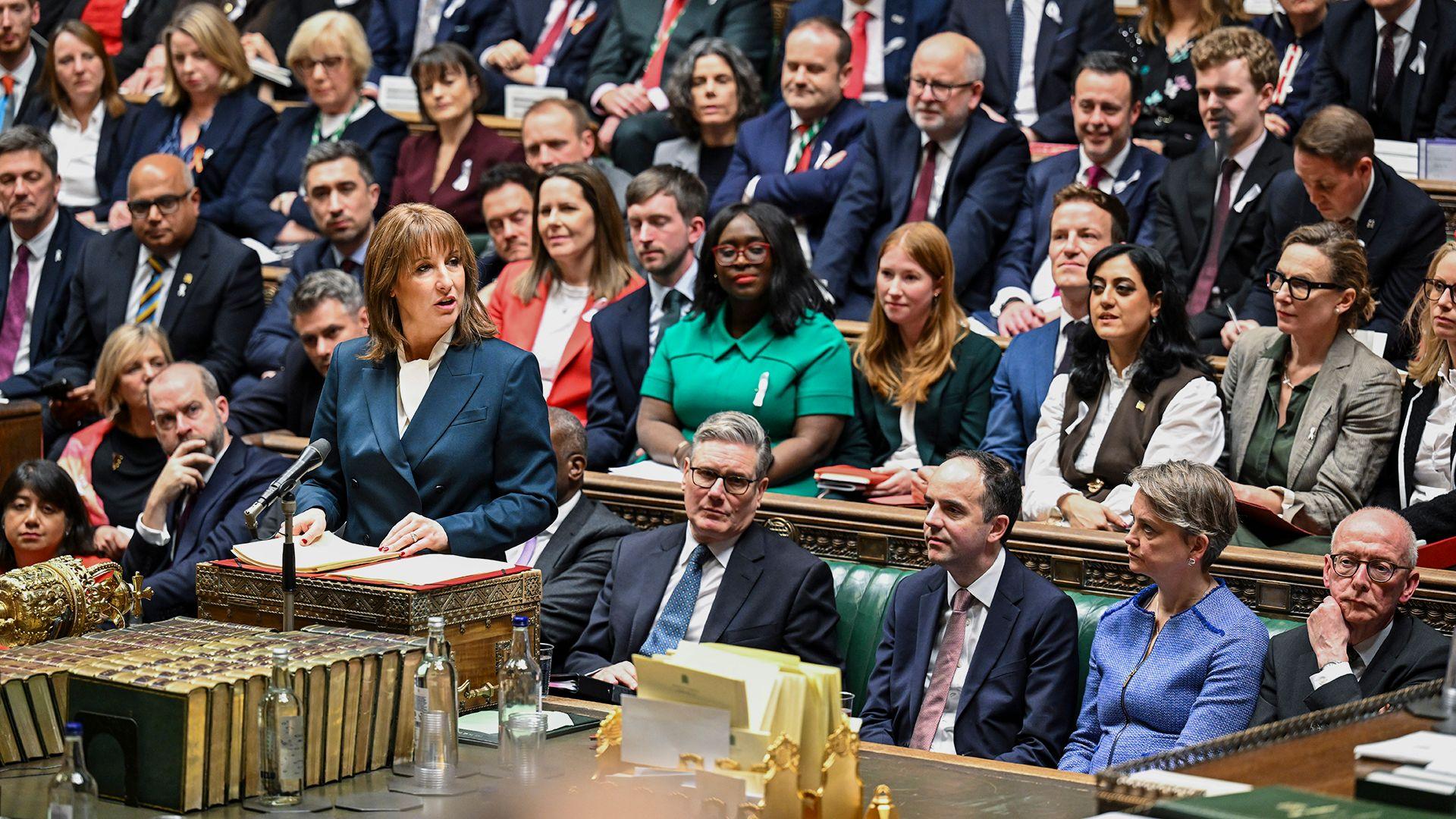Chris Mason: Reeves chooses to tax big and spend big

Chancellor of the Exchequer Rachel Reeves delivered her Autumn Budget to the House of Commons on Wednesday
- Published
Folk in government defiantly and proudly regard this as a truly Labour Budget.
Tax rises for good reasons, they argue, as their critics to the Right argue spending, benefits and taxes are out of control.
At the heart of this Budget was the chancellor choosing to tax big and spend big.
Don't take my word for it: the Institute for Fiscal Studies says that "if an election were held tomorrow, the overall tax rises announced in this parliament would exceed those announced in any other since at least 1970."
Rachel Reeves argues doing so means the government can do what party figures regard as "good Labour things" like the decision to scrap the two-child limit on the child element in Universal Credit.
"The removal of the two-child limit will lift 450,000 children out of poverty, rising to around 550,000 alongside other measures announced this year, such as the expansion of free school meals," the government's Budget document proudly declares.
Labour MPs in the Commons were noisily delighted as the plan was set out – so many have been campaigning vociferously for this ever since the general election.
There isn't universal support for it though on the Labour benches – there is an awareness that as popular an idea as it is for many within the party, opinion polls suggest maintaining the cap was popular too.
It is an illustration of the different audiences the chancellor needs this Budget to appeal to.
It needs to be seen to be credible in the financial markets, so the government can continue to borrow and do so at affordable rates.
It needs to be well received by the wider electorate, particularly given how unpopular the government is right now.
And for that same reason, it needs to go down well among Labour MPs, who are keenly aware of how desperate the party's opinion poll ratings are right now.
The government argues all but the richest 10% of households will benefit by the end of the decade from what the chancellor has set out – underlining again the progressive instinct they want to proudly talk up.
Downing Street, both No 10 and No 11, will hope the exuberant waving of order papers from Labour backbenchers when the chancellor completed her address carries on – metaphorically – in the months ahead.
This would, they hope, buy the prime minister and chancellor some time.
And two other developments could prove key in whether they achieve that.
The chancellor is giving herself more headroom in her numbers – more space before breaking her self-imposed rules to reassure the markets. This should mean events are less likely to jeopardise her plans.
Another thing that should reduce the likelihood of this is the independent watchdog and forecaster, the Office for Budget Responsibility (OBR), checking if the government is meeting those rules just once a year, instead of twice.
And Reeves may also reflect there is an additional bonus in OBR only pressing 'publish' once every 12 months: it halves the likelihood of a repeat of Budget day's jaw-dropping cock-up which stole the chancellor's thunder – when they managed to publish her entire plans 45 minutes before she stood up in the Commons to announce them.
Get in touch
Have you been affected by the UK budget announcement?